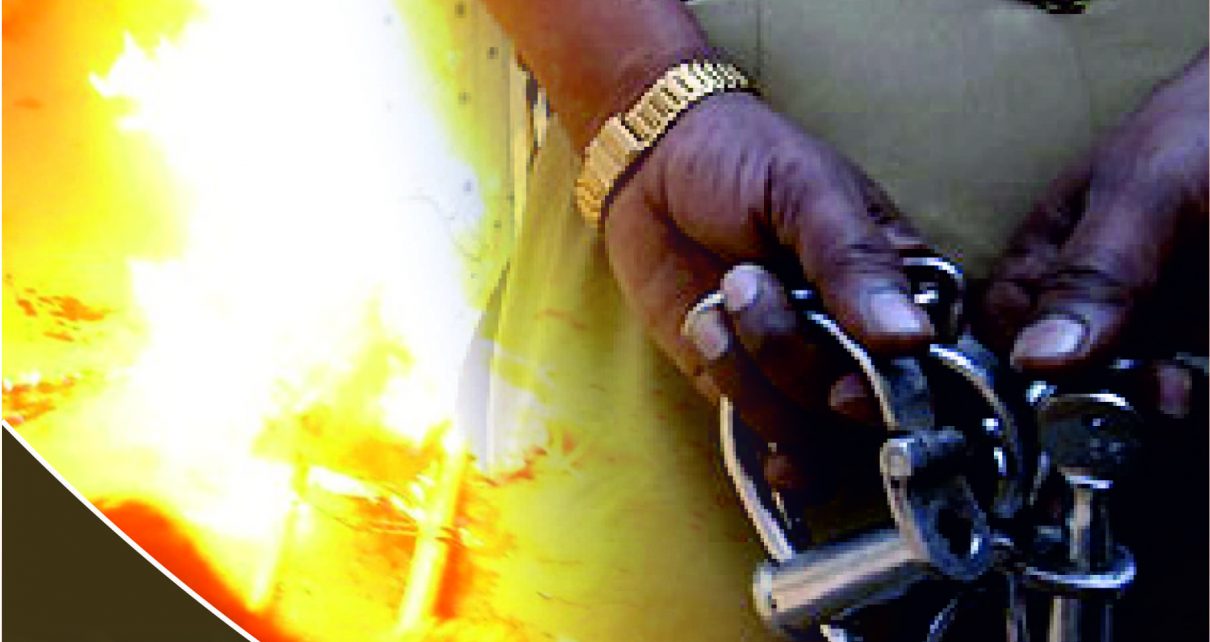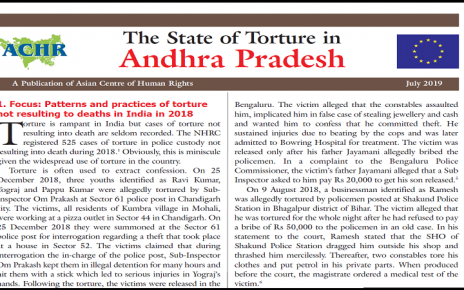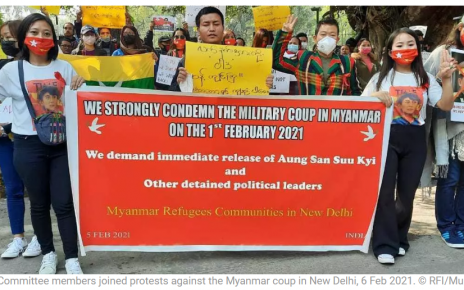NEW DELHI, 18 March 2020: India: Annual Report on Torture 2020 released today by the National Campaign Against Torture (NCAT) reported that despite the virtual shutdown of the country including complete lockdown from 24 March to 31 July 2020, India witnessed an increase in custodial deaths during the year and over one suicide every week because of alleged torture in police custody.
“Though reported robbery, theft and burglary declined significantly, falling by more than 50 per cent in most countries with the larger decrease in countries with stricter lockdown regimes as per a study conducted by the United Nations Office on Drugs and Crime (UNODC), there has been increased deaths in police custody in India. On 17 September 2020, the Ministry of Home Affairs informed the Lok Sabha that 113 persons died in police custody from 1 April 2019 to 31 March 2020 but the NCAT recorded deaths of 111 persons in police custody in 2020 despite India having one of the strictest lockdowns in the world for months. This makes the increase in deaths in police custody obvious”. – Stated Mr Suhas Chakma, Coordinator of the NCAT.
The highest number of custodial deaths were reported from Gujarat and Uttar Pradesh with 11 custodial deaths each; followed by 10 in Madhya Pradesh; nine in West Bengal, eight in Tamil Nadu; six each in Odisha, Punjab and Rajasthan; four each in Andhra Pradesh, Jharkhand and Maharashtra; three each in Chhattisgarh, Delhi, Haryana, Jammu & Kashmir and Karnataka; two each in Arunachal Pradesh, Assam, Uttarakhand; and one each in Bihar, Himachal Pradesh, Kerala, Manipur, Mizoram, Telangana and Tripura.
“Police stations are increasingly becoming centres for suicide due to alleged torture. At least one person commits suicide every week due to alleged police torture. In 2020, the NCAT recorded 55 deaths by suicide as a result of police torture i.e. more than one suicide per week because of torture in police custody. The maximum number of cases of suicide as a result of torture were reported from Uttar Pradesh with nine cases, followed by Andhra Pradesh with seven cases and Madhya Pradesh with four cases.” – further stated Mr Chakma.
The NCAT further recorded the deaths of 18 victims as a result of torture and beating by the police while enforcing the COVID 19 lockdown from 25 March to 31 May 2020.
Apart from the police, the Forest Department officials were also responsible for perpetrating torture. The NCAT documented at least three deaths at the hands of Forest Department officials in 2020 including Maniram Gond in Madhya Pradesh on 19 July 2020, 70-year-old Anaikarai Muthu in Tamil Nadu on 23 July 2020 and Balabhadra Behera in Odisha on 13 October 2020.
The NCAT documented a number of cases of torture including deaths of Dalit and tribal people in police custody in 2020.
Torture of women in custody and custodial rape of women including two minors and victim of a gang rape who had approached the police were reported.
Illegal detention and torture of children in gross violations of the Juvenile Justice (Care and Protection of Children) Act, 2015 were reported while the NCAT documented the death of four children due to torture in police custody. The NCAT also documented two cases of death of minors due to alleged torture in juvenile homes.
In 2020, the NHRC also recorded 1,569 deaths in judicial custody across the country. The NCAT recorded at least 18 deaths in prison custody as a result of torture, 51 cases of deaths due to alleged denial of timely and appropriate medical treatment to the prisoners and 34 cases of suicide in prisons. Prison conditions remain torturous with Delhi reporting the highest overcrowding with 174.9% followed by Uttar Pradesh (167.9%), Uttarakhand (159%), Chhattisgarh (153.3%), Uttarakhand (150%), Meghalaya (157.4%), Madhya Pradesh (155.3%), Sikkim (153.8%), Maharashtra (152.7%) and Chhattisgarh (150.1%) as of 31st December 2019 as per the National Crime Records Bureau.
In armed conflict situations, the armed forces consisting of the Indian Army and the Central Armed Police Forces (CAPF) have the power to take persons into custody and there were reports of torture and sexual violence at the hands of the armed forces in 2020.
The armed oppositions groups in Jammu and Kashmir and the Naxalites were also responsible for a number of cases of torture and extrajudicial executions.
The Dalits and the tribals faced killing, torture, degrading and humiliating treatment and sexual violence. The Hathras gang rape case of 14 September 2020 in which a 20-year-old Dalit girl was gang-raped by four upper-caste men at a village in Hathras district, Uttar Pradesh exemplified the atrocities on Dalits.
“The NCAT welcomes two significant judgements of the Supreme Court i.e. the judgment in Toofan Singh vs State of Tamil Nadu which made confession to officers under the Narcotic Drugs and Psychotropic Substances Act inadmissible as evidence and the judgment in Paramvir Singh Saini vs Baljit Singh directing the installation of CCTV cameras with night vision cameras in each police station and the interrogation facilities of the Central probe agencies. Both these judgments can significantly reduce torture but the way the Union of India and the State governments have been dragging their feet to not install the CCTVs shows that torture is indeed an integral part of criminal investigation and administration of justice and there is no political will to reduce torture.”- also stated Mr Chakma. [Ends]




